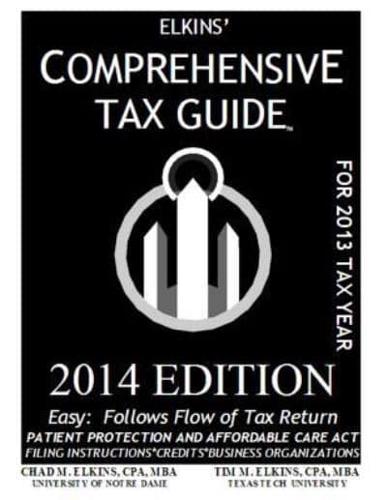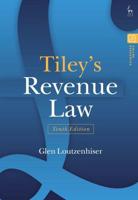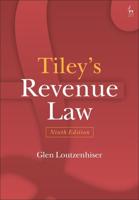Publisher's Synopsis
This Tax Guide is an easy to use and understandable reference for anyone, including tax professionals, who prepare 2013 income tax returns. The Guide follows the flow of a tax return, from filing status and requirements through tax credits. It is primarily for use in preparing individual and small business tax returns, with chapters that include detailed discussions on employee travel and entertainment expenses, depreciation, and carrying on a trade or business as a sole proprietor, partnership, farmer, and S-Corporation. It also includes informative language and examples on classifying workers as employees vs. independent contractors, and reasonable salaries for S-Corporation shareholders. A unique feature of this Guide compared to others on the market is a chapter devoted to dealing with the IRS, which alone is worth getting this Guide as a reference. It includes detailed information on applicable penalties for underpayment of taxes, failure to file, failure to pay, and how to avoid paying penalties and interest. It discusses how taxpayers can meet the eligibility requirements for the IRS "Fresh Start" program which is designed to help financially distressed taxpayers resolve tax problems more quickly and relieve them of certain penalties. Also, First-Time Penalty Abatement and the "Fast Track Settlement Program" are addressed, which are IRS initiatives designed to help taxpayers. The chapter on dealing with the IRS includes a section on IRS audits that talks about IRS notices and the Agency's latest concentration on its audit-by-mail program. It discusses how to survive an IRS audit, how to handle a dispute over a tax liability, how to prepare a request for appeals, closing agreements, offers in compromise, and what happens in Tax Court. Perhaps the most important chapter in this Guide is the one about the "Patient Protection and Affordable Care Act," also known as Obamacare. This chapter discusses in detail all of the compliance and tax provisions of the law, including the additional 0.9% Medicare surtax on high-income earners, the 3.8% surtax on "net investment Income" of high-income earners, and the 2.3% excise tax on medical devices. The individual and employer mandates are discussed in detail, including penalties, exemptions, the IRS role in implementing the mandates, and the latest implementation timelines. While some IRS regulations and court cases are referred to in this Guide, the aim was to keep such references to a minimum. The goal was to discuss, in plain English, what is required and not required by tax laws and regulations without the legal jargon as much as possible, and to give understandable examples where needed. We believe our goal has been achieved by publishing this tax book.










